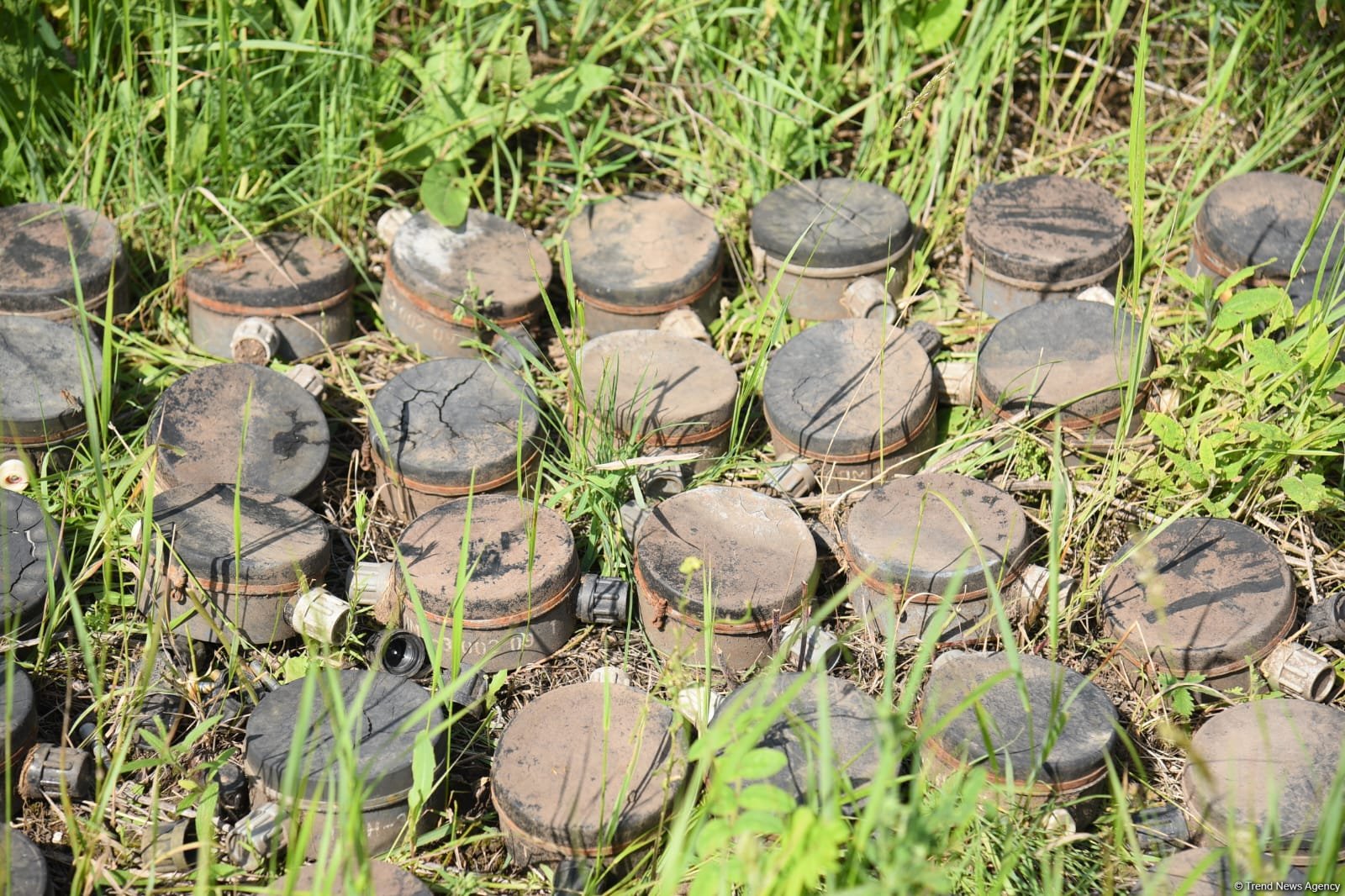BAKU, Azerbaijan, June 17. Euronews has featured an article about the third International Conference on Mine Action that took place in Azerbaijan’s Baku and Zangilan, Trend reports.
The article reads as follows:
Azerbaijan - a nation that is among the top five most heavily mine-contaminated countries globally.
Mines and improvised explosive devices, especially in situations and areas of armed conflict, continue to kill and cause injury around the world. It’s estimated that there could be up to 110 million landmines in over 60 countries worldwide, with a further 2 to 5 million mines being laid every year.
More than 300 representatives from 75 countries came together to discuss ways of mobilising financial resources to mitigate the environmental impact of landmines and other explosive remnants of war.
Hikmet Hajiyev, assistant to the President of Azerbaijan and head of the Department for Foreign Policy Affairs told Euronews: “Azerbaijan is a laboratory for humanitarian demining and mine action globally. Azerbaijan has gained a particular knowledge and expertise, and once Azerbaijan's demining project is over, Azerbaijan will also have the capacity to contribute to other humanitarian demining projects globally.”
There are two main categories of landmines: anti-personnel landmines (AP) and anti-tank (AT) landmines. Anti-personnel mines are smaller than AT mines and are designed to kill or injure people. They can be triggered by much less pressure, sometimes as little as 5 to 15 kilograms. Anti-tank mines are designed to destroy vehicles such as tanks and armoured vehicles and need a lot more pressure to detonate, usually more than 100 kilograms.
“Landmines are really a crime against humanity. If you have a plastic bag in the ocean, it takes 200 years to disappear. Mines never do, and mines keep continuing to pollute the environment,” said Alessandra Roccasalvo, Resident Representative, UNDP, Azerbaijan.
On average, one person is killed or injured by these explosive devices every hour with many children among the victims. Heidi Kühn is the CEO and founder of Roots of Peace, a humanitarian organisation dedicated to the removal of landmines and the subsequent replanting and rebuilding of war-torn regions. She told Euronews: “I have walked the minefields of the world, and every time you go into a minefield, they ask you your blood type. It's a defining moment. I'm a mother of four, and I take my footsteps very, very, very seriously. But how dare I not?”
“It takes 8 pounds to detonate a landmine. That's the average weight of a newborn child. So, as a mother and a grandmother, I think this is a global call to action from the heart of Karabakh to the world,” she added.
Africa is the continent most affected by the sowing of land mines, with Angola, Mozambique and Somalia being the most critical countries. The most common injury associated with land mines is the loss of one or more limbs. In the United States, the rate of amputation is 1 for every 22,000 people and in Angola, it is 30 for every 10,000. They also leave a huge percentage of the land unusable, unable to be cultivated or re-habited and the environmental impact can be devastating.
“The leakage of the TNT breakdown products could happen, and this will contaminate the soil and underground waters. So besides that, the emission of carbon dioxide, after every explosion of landmines is also huge. So one tank landmine, after its explosion, will emit 29kg of carbon dioxide,” said Samir Poladov, deputy chairman of the Board at the Azerbaijan National Agency for Mine Action (ANAMA).
The conference also saw calls for the strengthening of international partnerships in the field of humanitarian de-mining.
Ambassador Elchin Amirbayov, representative of the President of Azerbaijan, special assignments said: “The donor community must pay much more attention to allocating some funds, especially to those countries who are mostly affected by this. Without addressing this issue on a global scale, it wouldn't be possible to deal with this in separate countries.”
“Azerbaijan made its contribution to this effect by introducing at the national level the 18th SDG, its Sustainable Development Goal, which is humanitarian demining,” he added.







